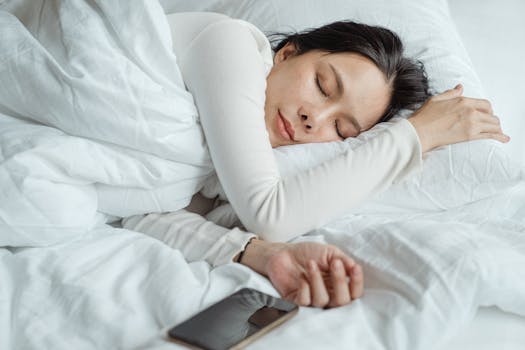
“
Creating a Balanced Sleep Routine for Better Rest – WordPress
Introduction to Sleep Routine

Creating a balanced sleep routine is crucial for better rest and improved overall well-being. A good sleep routine can help you feel refreshed, revitalized, and prepared to take on the day. In this article, we will explore the importance of a balanced sleep routine and provide tips on how to create one.
Why is Sleep Important?

Sleep is essential for our physical and mental health. During sleep, our body repairs and regenerates damaged cells, builds bone and muscle, and strengthens our immune system. Sleep also helps us to process and consolidate memories, and it plays a critical role in our cognitive function and emotional well-being.
Consequences of Poor Sleep

Poor sleep can have serious consequences on our health and well-being. Chronic sleep deprivation can lead to an increased risk of obesity, diabetes, cardiovascular disease, and stroke. It can also affect our mood, cognitive function, and reaction time, making it difficult to perform daily tasks and make sound decisions. For more insights on lifestyle impacts, check out our post on the impact of lifestyle choices.
Creating a Balanced Sleep Routine

Creating a balanced sleep routine involves establishing a consistent sleep schedule, creating a sleep-conducive environment, and developing relaxing bedtime routines. Here are some tips to help you create a balanced sleep routine:
- Go to bed and wake up at the same time every day, including weekends.
- Create a sleep-conducive environment by ensuring your bedroom is dark, quiet, and cool.
- Develop relaxing bedtime routines, such as reading a book, taking a warm bath, or practicing gentle stretches.
- Avoid stimulating activities and electronic devices before bedtime.
- Avoid consuming heavy meals, caffeine, and alcohol close to bedtime.
Tips for Improving Sleep Quality

In addition to creating a balanced sleep routine, there are several other tips that can help improve sleep quality. These include:
- Getting regular exercise, but avoiding vigorous exercise within a few hours of bedtime.
- Practicing stress-reducing techniques, such as meditation or deep breathing.
- Getting some morning sunlight exposure to help regulate your circadian rhythms.
- Avoiding naps, or keeping them short and early in the day.
- Trying progressive muscle relaxation, mindfulness, or other relaxation techniques to help you relax and fall asleep.
Conclusion

Creating a balanced sleep routine is essential for better rest and improved overall well-being. By establishing a consistent sleep schedule, creating a sleep-conducive environment, and developing relaxing bedtime routines, you can improve the quality of your sleep and wake up feeling refreshed, revitalized, and prepared to take on the day. For more about enhancing your environment for better living, read our article on incorporating plants for a vibrant feel.
See more:
https://www.sleepfoundation.org/
https://www.cdc.gov/sleep/index.html
https://www.nhlbi.nih.gov/health-topics/sleep-deprivation


